Feast Your Eyes on Some of the Year’s Best Wildlife Photography ... Green Rules apply

The British Ecological Society has announced the winners of its annual photo competition, and it features fantastic photos of fearsome predators pouncing on prey, a freakishly rare ocelot, and a crafty chameleon doing what a chameleon does best.
This year’s competition was called “Capturing Ecology,” and it features photos primarily taken by international ecologists and students. In addition to capturing beautiful images, the photographers had to demonstrate interactions between different species in their natural environments—a not-so-easy task. The competition featured several different categories, each with an overall winner and a student winner. Here are some of our favorites.
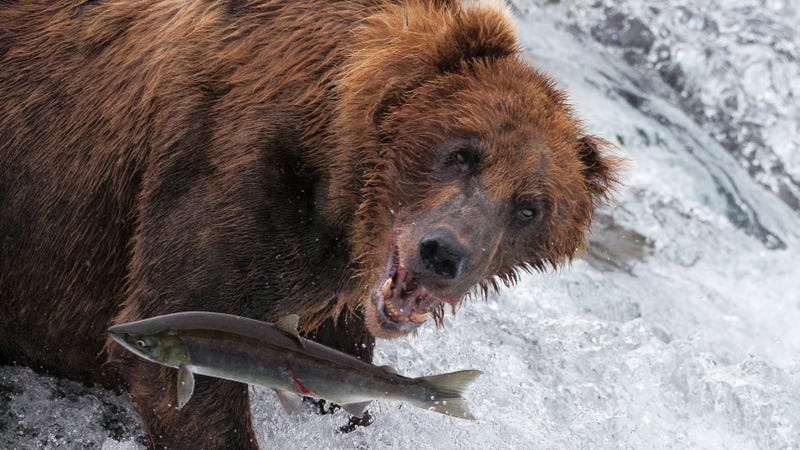 This image, called “Salmon Run,” was the winner of the Dynamic Ecosystems category
This image, called “Salmon Run,” was the winner of the Dynamic Ecosystems category
Image: Zoe Davies/British Ecological Society
On the trail: Christopher Beirne, Crees Foundation and University of Exeter
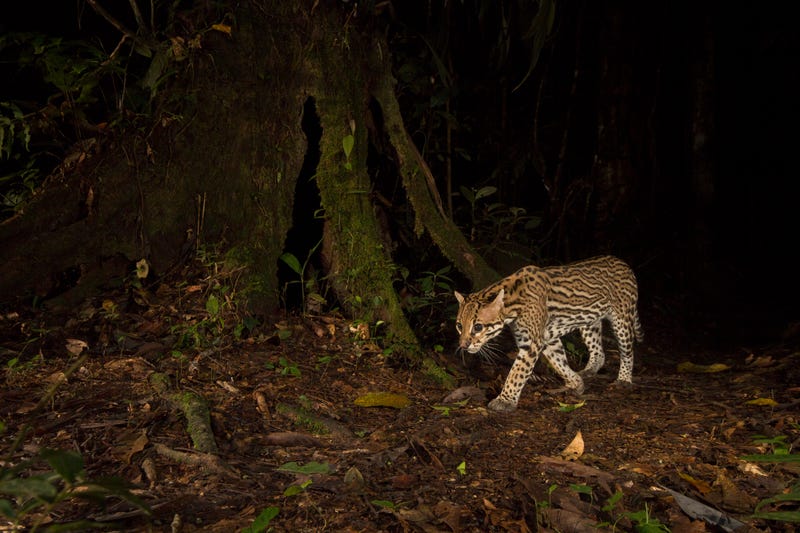 Image: Christopher Beirne/British Ecological Society
Image: Christopher Beirne/British Ecological Society
This photo by Christopher Beirne was the overall winner of the competition. It shows a male ocelot traversing a human-made trail at the Manu Learning Centre, Peru. “Although we often think of trails through tropical rainforests as having negative impacts on local wildlife, several cats species (including the ocelot and its larger cousins pumas and jaguars) often use these trails to rapidly move around their home ranges,” writes Beirne in a press release.
Toco toucan looking back: Mark Tatchell
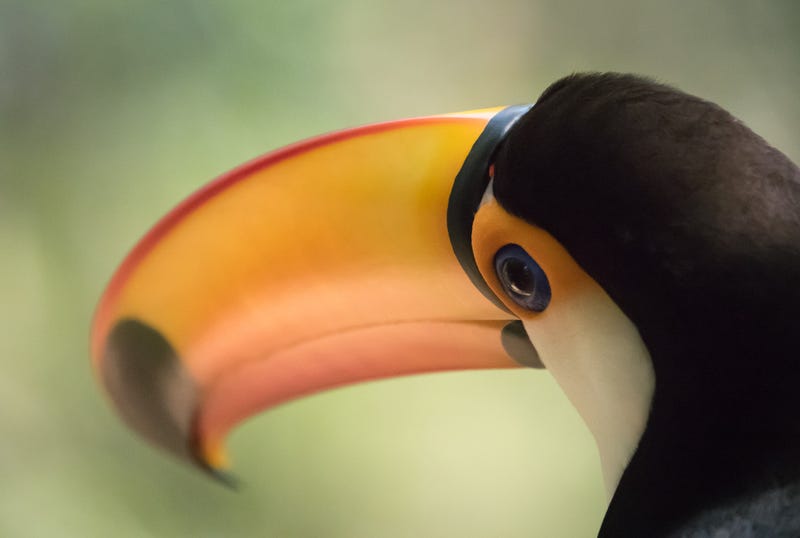 Image: Mark Tatchell/British Ecological Society
Image: Mark Tatchell/British Ecological Society
Retiree Mark Tatchell was the runner-up with this colorful photo of a Toco toucan (Ramphastos toco).
I See You: Leejiah Dorward, Department of Zoology, University of Oxford
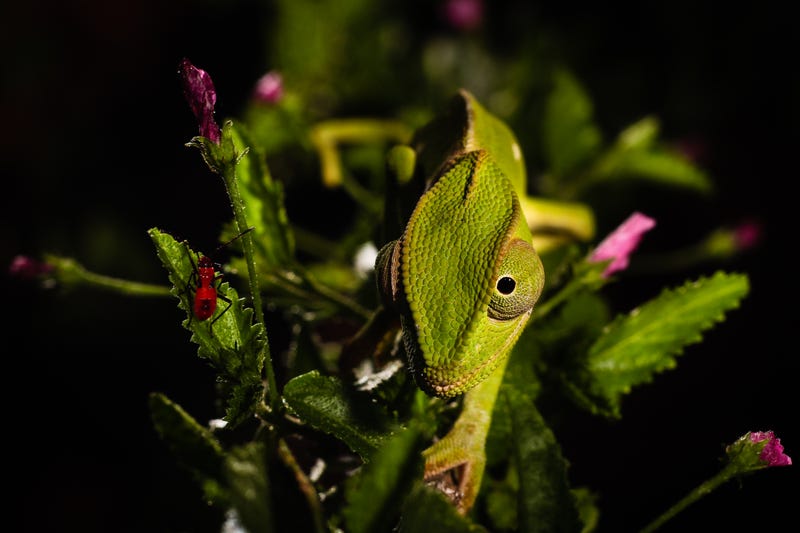 Image: Leejiah Dorward/British Ecological Society
Image: Leejiah Dorward/British Ecological Society
Leejiah Dorward was the Overall Student Winner for this picture of a flap-necked chameleon climbing a flowering plant stem in search for a safe spot to roost for the night in Southern Tanzania.
Venomous vine: Leejiah Dorward, Department of Zoology, University of Oxford
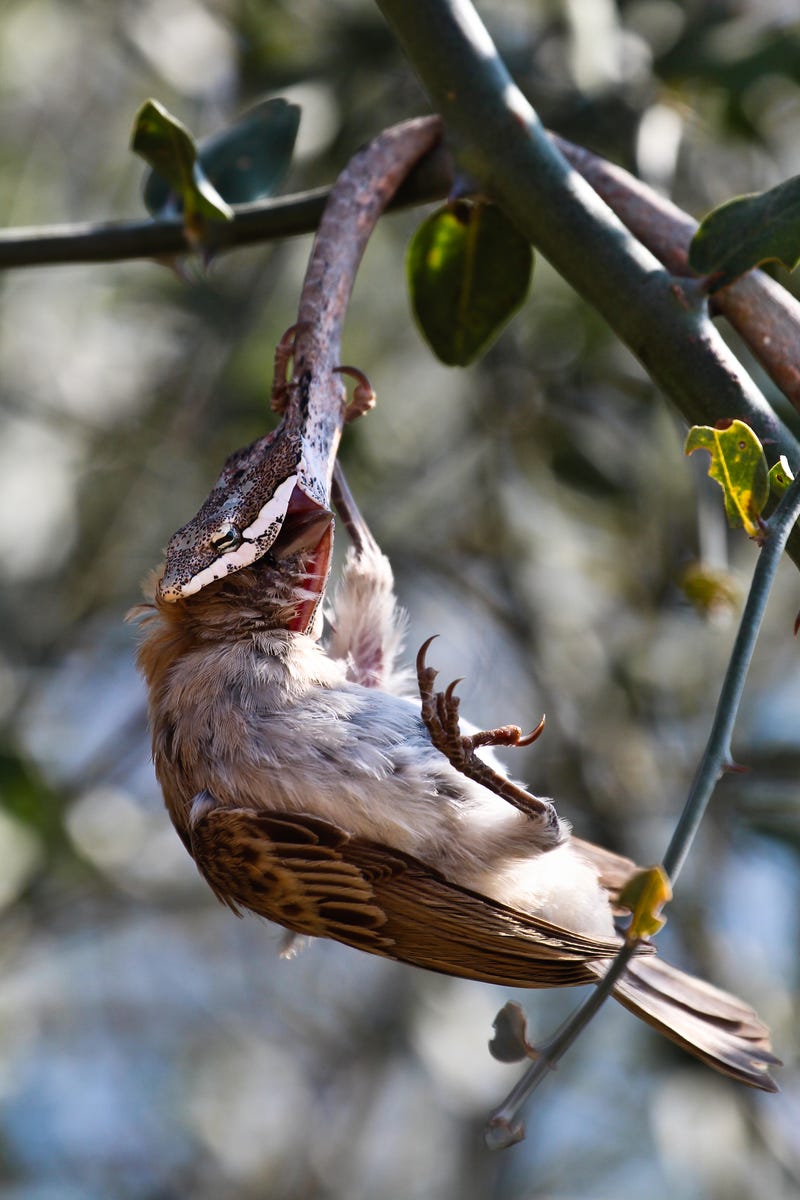 Image: Leejiah Dorward/British Ecological Society
Image: Leejiah Dorward/British Ecological Society
Student prize for the dynamic ecosystems category went to Leejiah Dorward for this photo of a Savanna vine snake holding a firm grip on a doomed Speckle-fronted weaver in Southern Tanzania. The snake’s camouflage makes it a formidable killer.
Female Leatherback turtle gets into trouble: Adam Rees, Plymouth University
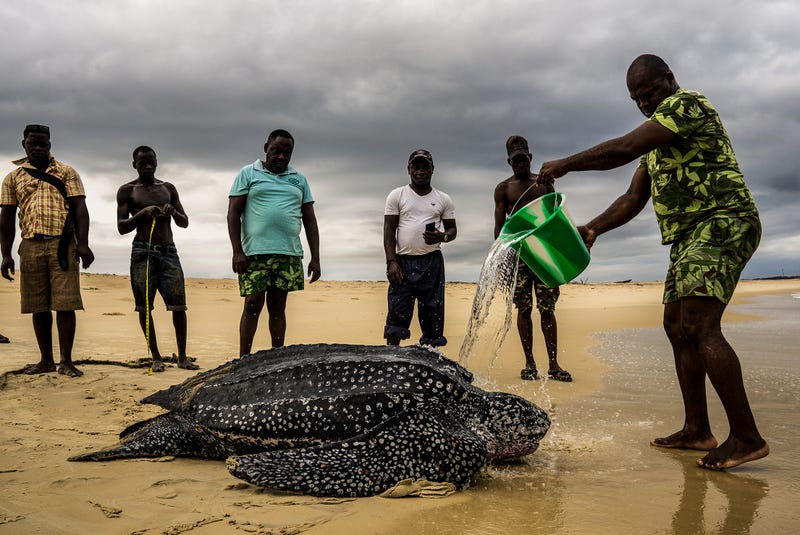 Image: Adam Rees/British Ecological Society
Image: Adam Rees/British Ecological Society
A pregnant female Leatherback turtle slinks back to the ocean after being saved by local NGOs and scientists after it became stranded inland. The previous evening, she mistook the city lights of Libreville, Gabon, for the starry night sky. Adult females depend on astronomical navigation when returning to their natal beaches to lay eggs. This photo won Adam Rees the Student Prize in the Ecology and Society category.
A Sedated Giant: Nick Harvey, University of Manchester, Chester Zoo
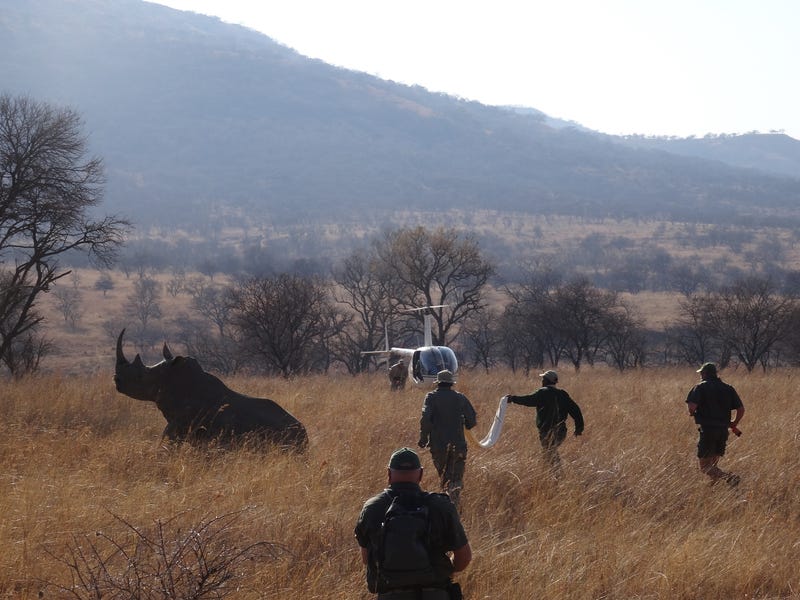 Image: Nick Harvey/British Ecological Society
Image: Nick Harvey/British Ecological Society
Nick Harvey won the Student Prize in the Ecology in Action category. In this scene, a white rhino had to be relocated from a small reserve in KwaZulu-Natal to prevent inbreeding. The massive bull was darted from the helicopter, blindfolded, injected with a tracker, and shoved—by hand—into a crate.
Meerkat Morning Weights: Dominic Cram, University of Cambridge
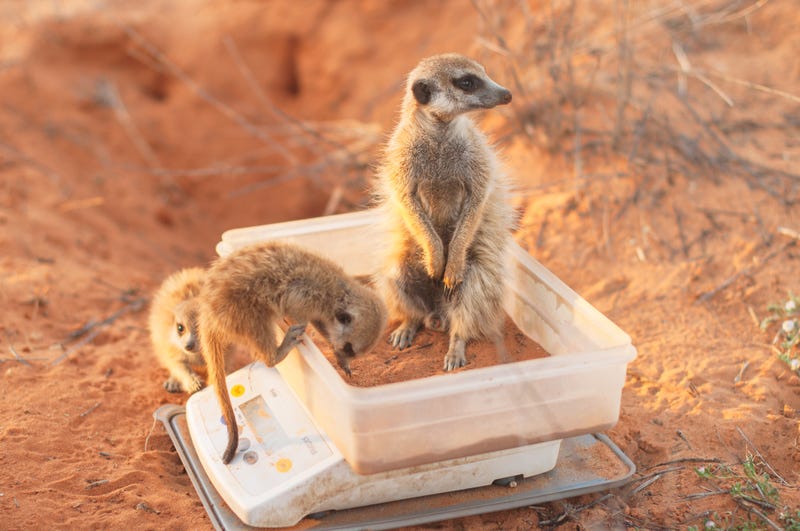 Image: Dominic Cram/British Ecological Society
Image: Dominic Cram/British Ecological Society
The overall winner in the Ecology in Action category went to Dominic Cram for this picture of meerkats loitering around a scale. “At the Kalahari Meerkat Project, wild meerkats are habituated to the presence of human observers, and are trained to climb onto electronic balances,” writes the BES. “Close observation of meerkats, and regular collection of weight data, allow researchers from the University of Cambridge to investigate behaviour and growth in a natural ecological context.”
Crossing the Line: Nilanjan Chatterjee, Wildlife Institute of India
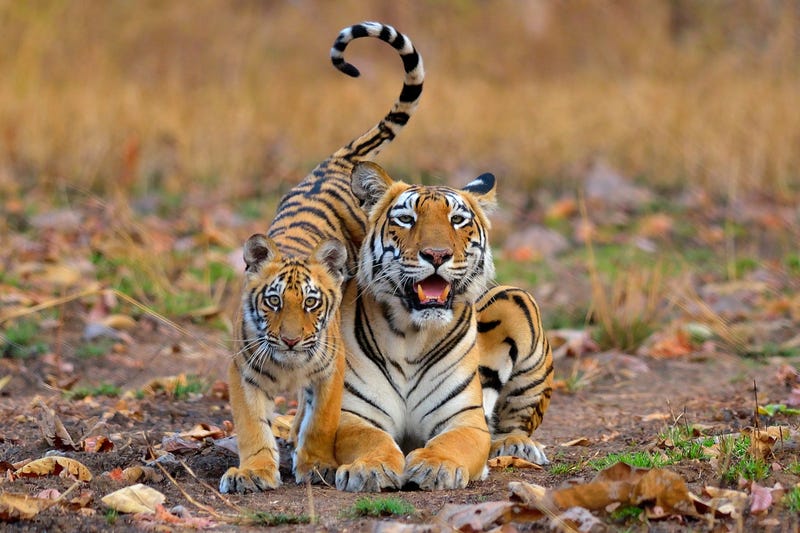 Image: Nilanjan Chatterjee/British Ecological Society
Image: Nilanjan Chatterjee/British Ecological Society
An inquisitive cub is seen coming out of its mother’s protection to explore the world outside, in this photo taken by Nilanjan Chatterjee. The image was winner of the Individuals and Populations category.
The Jar Effect: Sanne Govaert, Ghent University
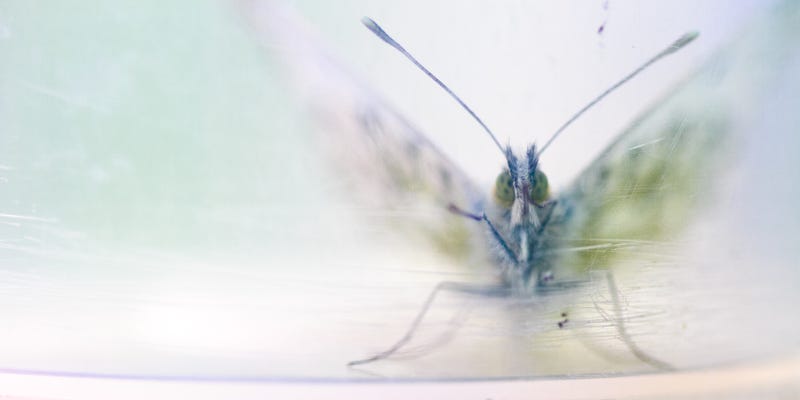 Image: Sanne Govaert/British Ecological Society
Image: Sanne Govaert/British Ecological Society
“During an excursion in my third year studying biology, a butterfly, Anthocharis cardamines, was caught and put into a plastic jar,” said Sanne Govaert, who took the photo. “This way the butterfly could be easily identified and shown to the interested students. The jar was scratched, giving an artistic flare to the picture.” This image won Student Prize in the Art of Ecology category.
White Silk: Roberto García Roa, Ethology lab, Cavanilles Institute of Biodiversity and Evolutionary Biology, University of Valencia
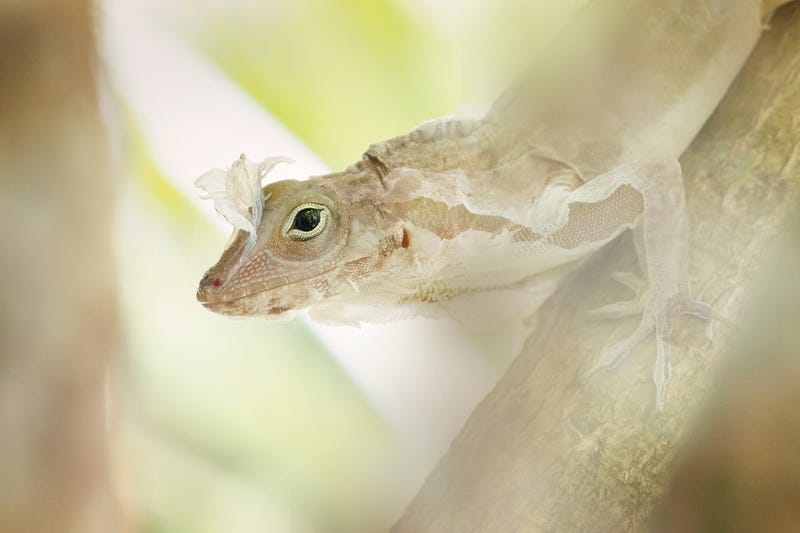 Image: Roberto García Roa/British Ecological Society
Image: Roberto García Roa/British Ecological Society
Winner of the Up Close and Personal category went to Roberto García Roa for this picture of a male Anolis Lizard in in Costa Rica.
=============================
There may be links in the Original Article that have not been reproduced here.




Any collection with meerkats is good.